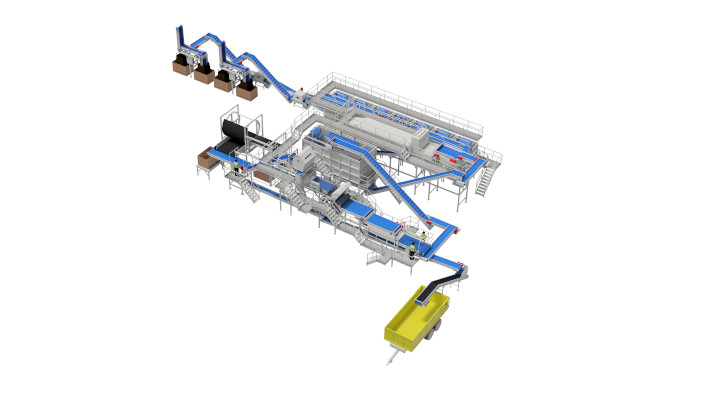The UK’s largest manufacturer of frozen potato products has announced that it will invest £2.5 million into its Montrose site, Scotland, to install a new optical sorting seed potato grading system.
McCain Potatoes in Montrose supplies around 30,000 tonnes of seed potatoes each year to growers in England, who then supply the McCain Foods factories. This enables the firm to have extensive traceability throughout its supply chain.
The installation will be handled by Haith in time for the 2022/23 grading and delivery system and will include the Rota-Tip box tipper, which was recently awarded the Queen’s Award for Innovation.
James Young, VP of Agriculture at McCain, said: “The investment into an optical grading line at our Montrose site marks the beginning of an exciting journey.
“Optical Grading technology has developed over recent years and, thanks to our partnership with Haith, we believe we’ve created a new and improved line that will benefit both us and our growers.
“Thanks to the new technology, we will minimise the damage caused in the grading process, be able to accurately size our potatoes and remove foreign materials and potato defects more easily. It will also create a more streamlined and operator-friendly work environment.
“With a grading line only being replaced every 15-20 years, we are delighted to be moving forwards with an optical line, embracing technology to help drive benefit across our supply chain and ensuring our business is future fit.”
Duane Hill, managing director at Haith, commented: “We’ve completed several projects for McCain over the years and it is great to be continuing our relationship with them.
“We have been pioneering the integration of optical sorters since 2004, in which time we’ve installed over 100 Tomra and Newtec graders. The line we have designed for McCain in Montrose is one of our largest solutions and will feature a 1200mm wide sorter capable of receiving up to 12 tonnes per hour.
“This new optical grading solution will offer improved accuracy. As the stone and clod that comes in with the crop is practically the same size as the seed potatoes, mechanical grading would not be able to tell the difference between the three elements, making optical grading the perfect solution for McCain.
“At Haith, we are seeing considerable interest in optical sorting as it helps packers and processors overcome labour shortages and increase both throughput and accuracy.”


